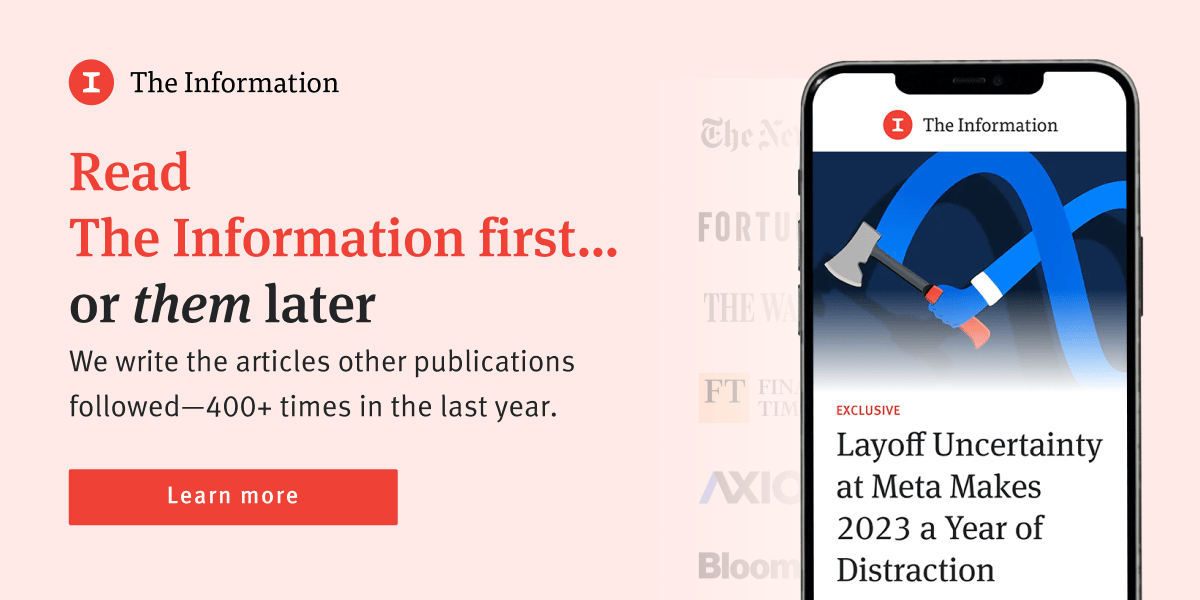- Important, Not Important
- Posts
- Tomorrow is another one
Tomorrow is another one
How quickly can we adapt?

Welcome back, Shit Givers.
It’s brutal out there right now.
I have 3 different essays in various stages of research and development and it just didn’t feel right to send any of them this week.
So — I’m re-running one of our most popular essays, because we’ve added over 10,000 new readers since I wrote it in March.
It’s evergreen and fairly meta — a real “how to think about how to think” ditty. If you need to be distracted for whatever reason, here you go.
THIS WEEK
How much change are we capable of absorbing?
— Quinn
I’m Quinn Emmett, and this is science for people who give a shit.
Every week, I help 23,000+ humans understand and unfuck the rapidly changing world around us. It feels great, and we’d love for you to join us.
Read The Information first…or them later
The Information’s journalists get the news that other newsrooms envy. That’s why their reporting on tech, media and finance has been followed by the New York Times, Bloomberg, the Wall Street Journal and dozens of other outlets more than 400 times in the last year.


Unsplash
WELCOME TO THE UNKNOWN UNKNOWNS
Take a look at your calendar. Note the date. Today is the day the world changed forever.
Let’s step back into the human past for a moment, to 1992.
Even if you’ve never seen Jurassic Park, you know the quote, the one by a soon-to-be-gloriously-shirtless Dr. Ian Malcolm.
“Your scientists were so preoccupied with whether or not they could, they didn’t stop to think if they should.”
Dr. Ian Malcolm’s quote has stayed relevant because it has applied to many of the technological advancements we’ve made since 1992, and it applies very much to what’s happening in “artificial intelligence” — but not in the way you think.
To be clear: I’m not here to bash innovation, not by a long shot, friend.
The world is better in almost every measurable way since 1992 not just because of environmental protections, lawsuits, anti-smoking campaigns, and the Sustainable Development Goals, but also because of advancements in genome science, big data, medical devices, targeted cancer therapies, pharmacology, ART, heart disease, and so many more.
To answer Dr. Malcolm, we absolutely should have done these, because we could. We were finally, marvelously, technologically able, and millions of lives could have been — and were subsequently — improved by them.
Today, we can do many, many fruitful things, and we should do those, as well, because we understand them, and they are necessary.
For example, we have virtually every technology we need to build a world powered by renewable energy sources. And with climate change here, of course we “should” build them, to bring meaningful relief to billions of people, animals, and ecosystems. The only “can” holding us back is the political will to overcome trillions in fossil-fuel subsidies and industry lobbying to build what the hell we need to build.
Once we overcome those, we can, should, and will spend the next few decades building an abundant, incredible world, relieving the devastating burdens we’ve put upon the planet’s ecosystems and most marginalized people, and honestly accounting and paying for new tradeoffs along the way.
We can do those things, now, and simultaneously, because we have the information we need to understand them, and (some) time to most ethically execute them. These are the known knowns.
With AI, “can” is no longer a question of technical ability — we’re well past that — but a much more urgent question of how much change we can possibly absorb. It requires us to shift Malcolm’s question from “Should we do X?” to “Can we afford to do X, all things considered?”
This new AI era supersedes everything before it, where the abundance from its utter ubiquity will rapidly compound into known unknowns — which we have some experience with, but don’t handle very well — and soon, unknown unknowns, where fundamental assumptions of how society works evaporate and future shock becomes the status quo.
Join the Important Membership to read the rest.
Members get access to this essay and everything else we make. #bless
Already a paying subscriber? Sign In.
Benefits include:
- • Your choice of our critically-acclaimed newsletters, essays, and podcasts
- • Ad-free everything
- • Your WCID profile: Track and favorite your actions while you connect with other Shit Givers
- • A welcome sticker pack!
- • Vibe Check: Our news homepage, curated daily just for you. Never doomscroll again
- • Lifetime thanks for directly supporting our work


Reply